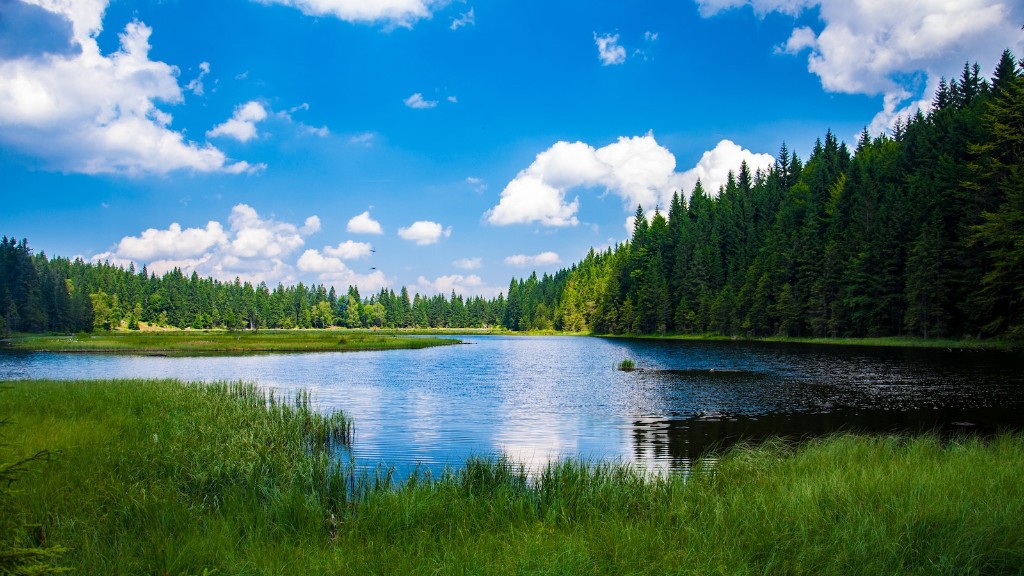Importance of the Nile River
The Nile River has been crucial for the civilization of Ancient Egypt for centuries and has been a source of life and vitality throughout the area. As the only river in Egypt, the Nile was vital for sustenance, irrigation, and growth. With its waters providing fertile ground for the growth of crops, above all the precious wheat, the Nile acted as the backbone of Ancient Egyptian civilisation.
The life that the river provides has been a source of survival since prehistoric times. The abundance of the Nile ensured that the Egyptian civilisation flourished despite living in the desert. Its banks provided a place to build settlements, while its waters ensured the availability of food. Ancient Egyptian mythology proclaimed the Nile to be the god of fertility and life, as it was the Nile that allowed the famine prone desert to be a land teeming with the most advanced pre-modern civilisation in the world.
The Nile provided access to trade, a source of food, transportation, and even shelter. It had influences in the advancement of their art, economy, and even spirituality. As the locals of Egypt drew in the resources of the river for sustenance, the importance of the Nile posed it as a central preoccupation throughout the country. Despite the occasional flood, the banks of the Nile always welcomed new soil, helping to replenish the lands of Egypt and allowing for more growth in construction and commerce.
From navigation to providing a natural levee, the Egyptians adapted their surroundings to their wills. This led to farming practices, the implementation of the first pyramid to adapt the terrain, and cataracts that enabled the construction of canals and flood control. It was the use of the Nile that allowed the Egyptians to build their great monuments, most notably the Pyramids of Giza and the Valley of the Kings. With its waters, the Egyptians discovered and adapted technology to enhance life and reduce labour.
Nile’s Role in Social Hierarchy and Religion
Considering the importance of the Nile, it became a fundamental part of the belief and ethos of Ancient Egyptians. Living off its waters, the Nile and the qualities it brought with it were revered for the power it had over the just and economic life of the civilisation. This can be seen through the way the religion of Ancient Egyptian was affected by the belief in the omnipotence of the river’s power.Ancient Egyptian gods were heavily associated with the Nile and its ability to foster life and sustain it.
Not only was the Nile used for sustenance and sustenance, it was also a limiting factor to the way of life. This caused strict class distinction that hindered the advancement of those on the lower end of the social hierarchy. This changed with the introduction of the New Kingdom redefining order and societal norms, while rebellions rose against the old order by uniting the country around the notion of one monarch. It was the Nile that allowed all this to be possible, as it cemented the unity between upper and lower Egypt.
Nile’s Role in Trade and Warfare
The Nile has also been a great enabler of trade and growth between different regions and neighbouring nations. Acting as a primary way of transportation and shipping, the Nile allowed for a larger scale of trading and commerce. This spread the production of goods to other nations and facilitated transportation on a much larger scale.
Also, the Nile has served as an important strategy during times of war. Ancient Egypt was always concerned with not only maintaining their own resources, but also in holding back their neighbours. The Nile was a key factor in this strategic movement, allowing the country to be a powerful nation.
The Nile, as a source of water, was also a powerful tool in battles and battles against the potential invaders. As a means of gaining a tactical advantage, it was common that the Egyptians would strategically block passages with stones, thereby preventing the enemy from accessing the banks, or flood areas in order to make the battlefield impassable and protect the region.
The Nile as an Economic Powerhouse
The Nile was also an influential resource in developing the economy of Ancient Egypt and enabled them to further their strength with its use. As the main source of trade, the Nile not only provided a natural highway but also a constant source of money, as taxes were collected from ships travelling along the river. As a result, Ancient Egypt was able to economically advance from this.
The combination of the river’s ability to control temperature and its importance to the agricultural life of Egypt allowed for several advantages throughout the region. The booming market of goods, the rise and growth of crafts, the advancement of new technologies, and even having a standing army, all these would become economical successes, creating the most powerful ancient civilisation.
The abundance of the Nile allowed the technology of Ancient Egypt to develop and flourish with different types of irrigation and various improvements to boats, resulting in a larger efficiency of trading. This attributed to a rapid economic increase and the construction of ambitious projects, such as the pyramids and the Valley of the Kings.
Nile’s Impact on Culture and Art
Living by the Nile had an effect on the culture too, with many of the Ancient Egyptian’s beliefs and practices shaped by the river. The Nile was the source of the belief in divine sources and the circles of life, the daily process of fertility, and the need for balance between chaos and order. This was shown in the spiritual connection to the river with many gods associated with its power, such as the sun god Ra, who was the direct ruler of the Nile and the god of mercy and fertility.
The ancient Egyptians worshiped and celebrated the power, strength and appearance of the river, reaping the blessings and rewards it gave them. This was seen in their art and literature, with sculptures and paintings of gods, goddesses, and the majesty of the river itself. They also used the Nile in their religious rituals, dedicating festivals to the river to ensure its continued power, fertility, and grace.
The importance of the river was highlighted in Ancient Egyptian literature and poetry. With words such as “land of the inundation”, “the waters of life”, and “the garden of plenty”, the Ancient Egyptians not only revered the river but also expressed their appreciation and respect for its role in generating life.
The Nile’s Legacy Today
The Nile River’s role in Ancient Egyptian civilisation is still felt today. As the primary source of sustenance for the area, its importance for the country has been well documented throughout history. This has made it a popular destination for tourists, with many monuments and sites having been well maintained in recent years.So it’s also seen as a source of assurance in the local population, with many still living off its waters and relying on it for survival.
The Nile River remains an important factor in the way of life in Egypt, and its role in creating an advanced civilisation is still being admired centuries later. It has been an important factor in the sustenance of the region, influencing the way its inhabitants interact and grow.
Impacts on Climate and Sustainability
The Nile is also a major factor in the sustainability of the land as torrential floods have been known to occur in the region. As a result, the area has been subject to extreme weather patterns that are influenced heavily by the significance of the river. Erosion of the land has been known to occur with the floods, leading to soil degradation and the destruction of certain areas of Egyptian living.
As a consequence, attempts have been made over centuries to stave off the effects of the floodwaters by erecting dams and other forms of land control. In recent times, measures have been taken to further ensure the sustainability of the area by modernising the river with the introduction of water pumps and other methods of irrigation. These are being used to prevent the flooding while ensuring the area remains green and fertile.
Furthermore, the success of the area has also been bolstered with the presence of international investors in the area. Major international companies have been actively participating in providing financial support in the development of the infrastructure and the construction of vital projects that both improve the quality of life and environment of the country.





